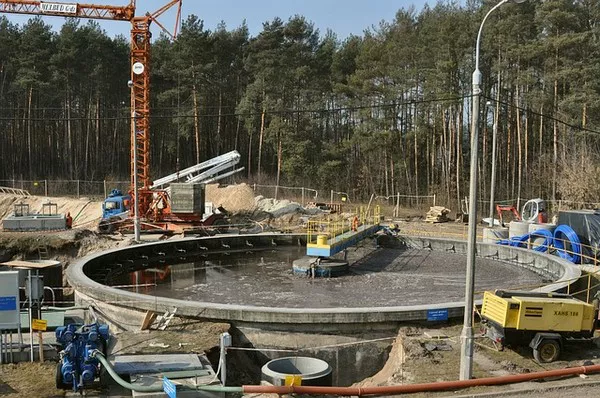Wastewater treatment is a critical process that plays a pivotal role in protecting our environment, public health, and water resources. As the global population continues to grow, so does the volume of wastewater generated by various industries, municipalities, and agricultural activities. Proper wastewater treatment is essential to mitigate the adverse impacts of pollution, conserve water, and ensure a sustainable future for generations to come. This article examines the importance of wastewater treatment, focusing on its significance in safeguarding the environment, promoting public health, and maintaining a balance in our ecosystems.
Environmental Protection
One of the primary reasons wastewater treatment is crucial is its direct impact on environmental preservation. Untreated wastewater contains a range of harmful substances such as pathogens, heavy metals, and organic pollutants. If released into water bodies without proper treatment, these contaminants can lead to devastating consequences for aquatic life and ecosystems.
Wastewater treatment facilities employ various methods to remove or neutralize these pollutants, ensuring that the water returned to rivers, lakes, or oceans is cleaner and safer for both wildlife and humans. This helps maintain the delicate balance of ecosystems, preserves biodiversity, and supports the natural processes that sustain life on Earth.
Public Health Benefits
Clean and safe water is a fundamental requirement for human health. Without proper wastewater treatment, the water that eventually reaches our taps can be contaminated with harmful pathogens and chemicals, leading to widespread waterborne diseases. Cholera, typhoid, and hepatitis are just a few examples of diseases that can spread rapidly through untreated wastewater.
By treating wastewater before it is discharged or reused, we significantly reduce the risk of waterborne illnesses and outbreaks. Proper treatment ensures that harmful microorganisms and toxins are removed, providing clean and potable water for consumption, bathing, and irrigation, thereby protecting public health.
Conservation of Water Resources
Water scarcity is a growing global concern, and efficient wastewater treatment is an essential component of sustainable water management. Through advanced treatment processes, wastewater can be purified to a level suitable for various non-potable purposes, such as agricultural irrigation, industrial processes, and groundwater recharge.
By recycling and reusing treated wastewater, we reduce the strain on freshwater sources, alleviate the demand on clean water supplies, and promote efficient water usage. This, in turn, ensures the availability of freshwater for essential needs, even in water-stressed regions.
Protection of Aquatic Life
Aquatic ecosystems are highly sensitive to changes in water quality, and untreated wastewater can be particularly harmful to aquatic life. Pollutants like nutrients (nitrogen and phosphorus) from untreated wastewater can cause excessive algal growth in water bodies, leading to oxygen depletion, commonly known as eutrophication. This suffocates aquatic life and disrupts the natural balance of ecosystems.
Wastewater treatment plants are equipped with processes that help remove excess nutrients and other pollutants, preventing eutrophication and restoring the health of aquatic habitats. By safeguarding aquatic life, wastewater treatment plays a vital role in maintaining biodiversity and supporting fisheries that provide a significant source of food and income for many communities.
Mitigating Climate Change Impacts
Wastewater treatment also contributes to mitigating climate change. Untreated wastewater contains a substantial amount of organic matter that can release greenhouse gases (GHGs) such as methane and nitrous oxide when decomposing anaerobically in water bodies.
Aerobic treatment processes in wastewater treatment plants facilitate the breakdown of organic matter, reducing GHG emissions. Moreover, some advanced wastewater treatment facilities are designed to capture and utilize methane gas produced during the treatment process as a renewable energy source. This not only reduces the carbon footprint but also contributes to energy sustainability.
Compliance with Environmental Regulations
Governments and international bodies have established strict environmental regulations regarding wastewater discharge to protect the environment and public health. Compliance with these regulations is essential for industries and municipalities to avoid fines, penalties, and reputational damage.
Wastewater treatment ensures that discharged effluent meets the required environmental standards, demonstrating a commitment to environmental responsibility and sustainable practices.
Conclusion
Wastewater treatment is undeniably vital for safeguarding our environment, promoting public health, and maintaining ecological balance. By removing harmful pollutants and ensuring the responsible reuse of water, treatment facilities play a critical role in building a sustainable future. As the global population continues to grow and urbanize, the importance of wastewater treatment cannot be overstated. Governments, industries, and individuals must recognize the significance of investing in advanced wastewater treatment technologies and systems to protect our precious water resources and secure a healthier and more sustainable world for generations to come.

